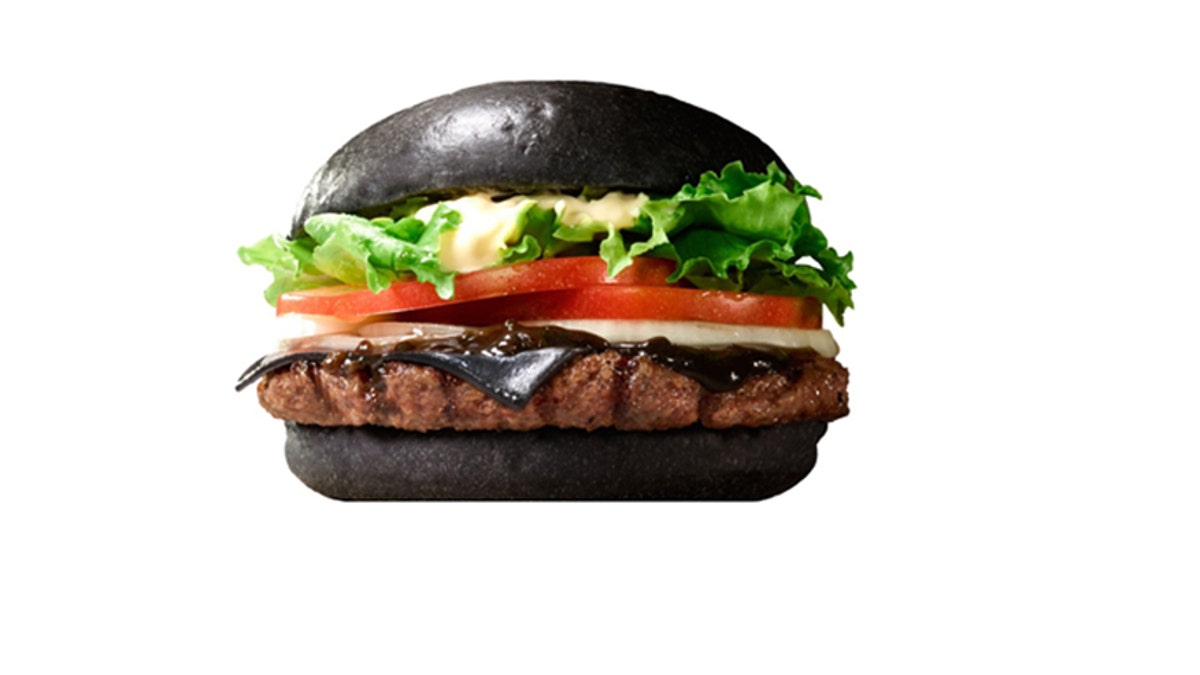
The Kuro Burger may look like a Halloween prank to Westerners. (Burger King)
Let's face it, black food isn't something that Americans usually find appealing.
Last week, Burger King Japan unveiled their latest burger creation. The “Kuro Burger”—which translates to “black burger” in Japanese-- features a dark black bun, a slice of black cheese, and, for an extra dose of darkness, the onion-garlic sauce is made with squid ink.
The burger made big news as an unusual, and potentially unappetizing, addition to the fast food chain menu.
But it turns out the idea of black food isn’t really that weird in Asia.
NYMag's GrubStreet spoke with Eva Hyatt, a professor of marketing at Appalachian State University Boone, North Carolina who studies food behaviors and preferences.
“There are definite cultural differences in color meanings and associations between the U.S. and Japan. Here we associate black with death (unlike the Japanese, who associate white with death) and might think that black food is molded or spoiled (i.e., dead and inedible), or else associated with the flavor licorice,” Hyatt told GrubStreet.
Cultural attitudes towards color have a big influence on preferences. That association plays out not only in the types of food the two countries eat—common items in Japanese cuisine include black seaweed, squid ink, food with fermented black-bean paste and black walnut powder—but in food packaging as well.
She notes that the Japanese tend to “associate bright, loud, primary colors (reds, yellows, oranges, blues) with foreign, Western food packages, whose people they consider to [be] brash and loud.”
The idea of a black burger is “novel… but not unappetizing” since it’s a muted-hued food made by a Western company. Plus, Hyatt notes, it appeals to the younger generation open to exciting new foods.
What do you think? Is a black burger exciting?
